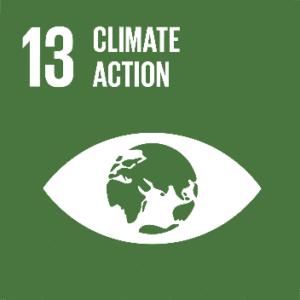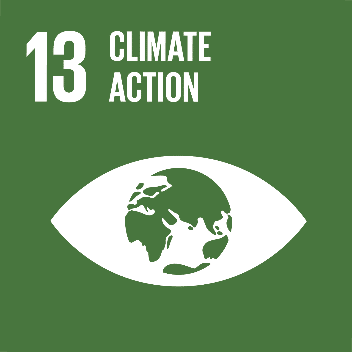WOIMA aligning with UN Sustainable Development Goals (SDG)
Goal 13: Take urgent action to combat climate change and its impacts

Climate change is now affecting every country on every continent. It is disrupting national economies and affecting lives, costing people, communities and countries dearly today and even more tomorrow.

People are experiencing the significant impacts of climate change, which include changing weather patterns, rising sea level, and more extreme weather events. The greenhouse gas emissions from human activities are driving climate change and continue to rise. They are now at their highest levels in history. Without action, the world’s average surface temperature is projected to rise over the 21st century and is likely to surpass 3 degrees Celsius this century – with some areas of the world expected to warm even more. The poorest and most vulnerable people are being affected the most.
Affordable, scalable solutions are now available to enable countries to leapfrog to cleaner, more resilient economies. The pace of change is quickening as more people are turning to renewable energy and a range of other measures that will reduce emissions and increase adaptation efforts.
But climate change is a global challenge that does not respect national borders. Emissions anywhere affect people everywhere. It is an issue that requires solutions that need to be coordinated at the international level and it requires international cooperation to help developing countries move toward a low-carbon economy.
- From 1880 to 2012, average global temperature increased by 0.85°C
- Oceans have warmed, the amounts of snow and ice have diminished, and sea level has risen. From 1901 to 2010, the global average sea level rose by 19 cm as oceans expanded due to warming and ice melted
- The Arctic’s sea ice extent has shrunk in every successive decade since 1979, with 1.07 million km² of ice loss every decade
- Average sea level rise is predicted as 24-30 cm by 2065 and 40-63 cm by 2100. Most aspects of climate change will persist for many centuries even if emissions are stopped today
- Global emissions of carbon dioxide (CO2) have increased by almost 50% since 1990
- It is still possible, using a wide array of technological measures and changes in behaviour, to limit the increase in global mean temperature to two degrees Celsius above pre-industrial levels
WOIMA is committed to helping the developing countries to take action to combat climate change. The tool is our modular wasteWOIMA® waste-to-energy power plant that will
- incinerate cleanly the waste of 100,000 – 500,000 people
- generate affordable energy for 50,000 – 100,000 people
- employ 100 – 200 people
- generate hundreds of jobs and training opportunities up- and downstream
- save 100,000 tons of CO2 equivalent emissions per year
- be up and running within 12 months
UN has set the following targets by 2030, supported by WOIMA and our modular wasteWOIMA® waste-to-energy power plant
- Strengthen resilience and adaptive capacity to climate-related hazards and natural disasters in all countries
- Integrate climate change measures into national policies, strategies and planning
- Improve education, awareness-raising and human and institutional capacity on climate change mitigation, adaptation, impact reduction and early warning
- Implement the commitment of mobilizing jointly $100 billion annually to address the needs of developing countries in the context of meaningful mitigation actions and transparency on implementation and fully operationalize the Green Climate Fund through its capitalization
- Promote mechanisms for raising capacity for effective climate change-related planning and management in least developed countries and small island developing States
Read more about the UN SDGs at
https://www.un.org/sustainabledevelopment/sustainable-development-goals/
Contact WOIMA to learn more on how we can change the world together.
WOIMA Social Media accounts





